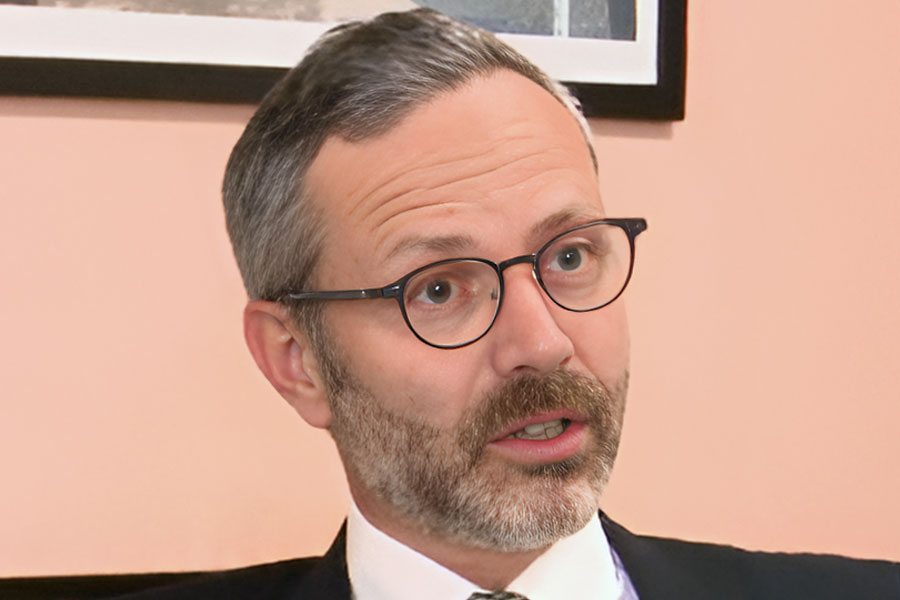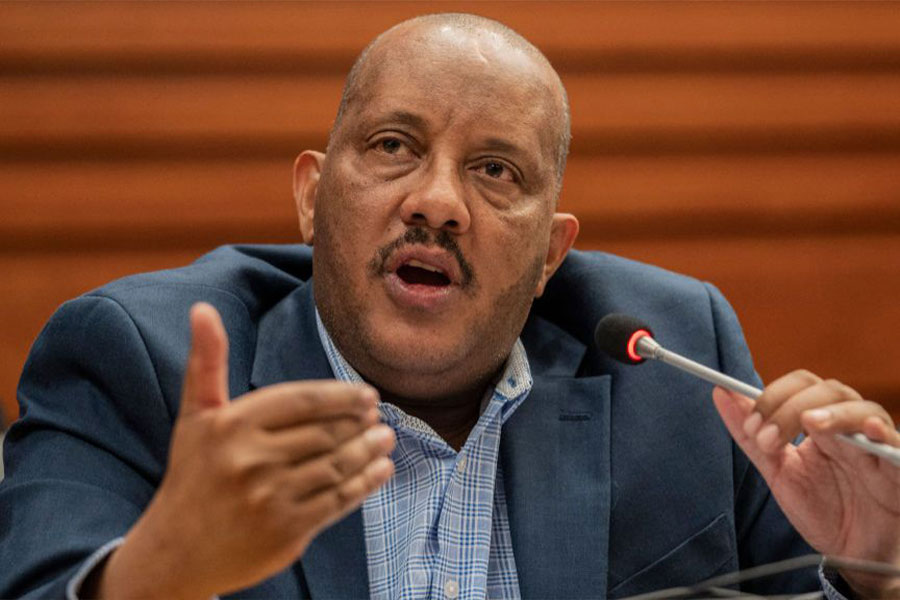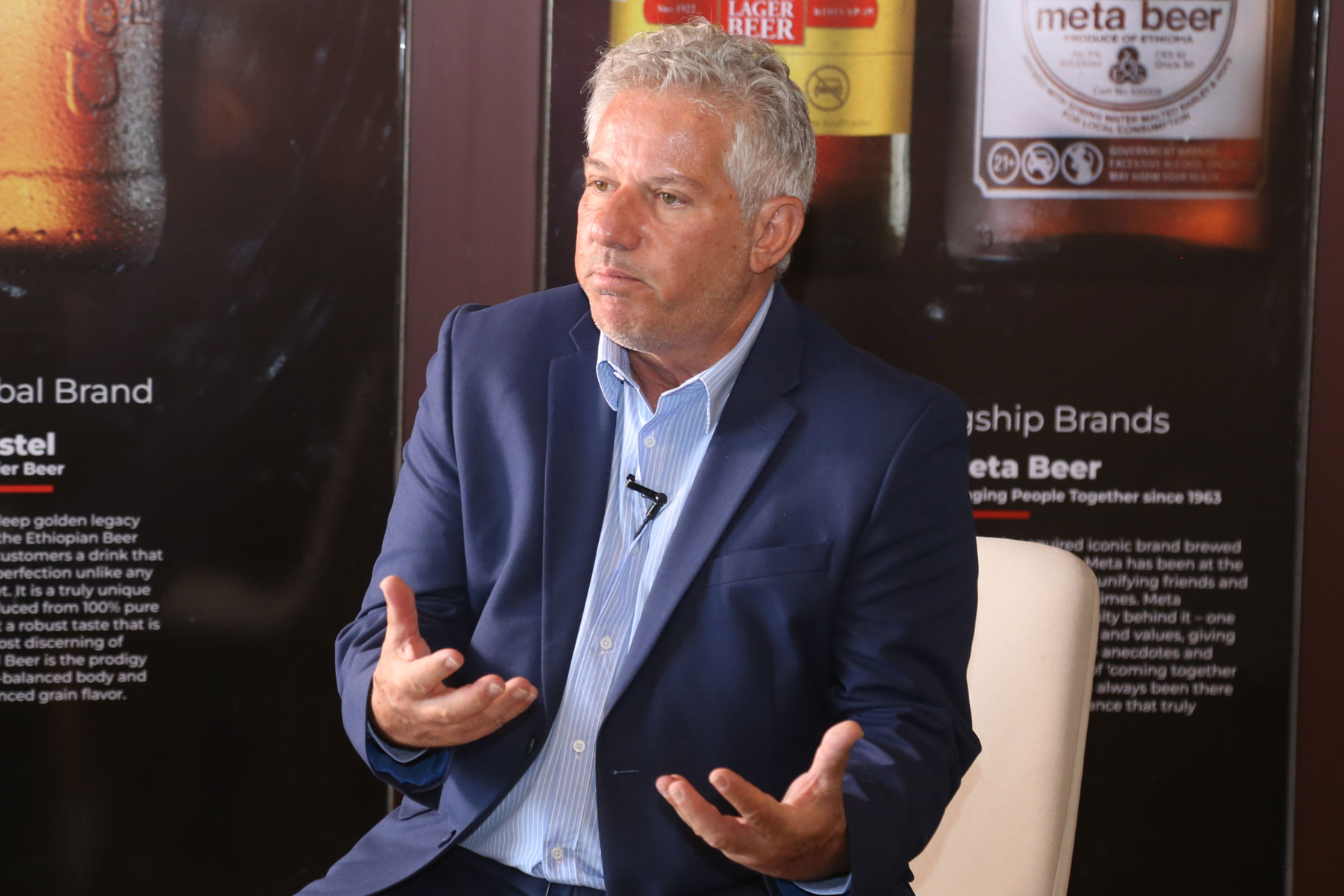
Viewpoints | Jun 24,2023
Feb 19 , 2022
By Sharon Ikeazor
Africa must do all its can to protect and promote the health and resilience of natural systems so that they can provide countries with the food and economic benefits on which the entire continent depends, writes Sharon Ikeazor, Nigerian minister of state for Environment.
Our continent is the most vulnerable to climate change, warming faster than the global average temperature, and the least able to afford the cost of implementing policies and practices that collectively makeup what is called “adaptation” to climate change. Without immediately embracing a revolutionary approach, we will cause our own demise. We must agree it is African biodiversity, habitats, and livelihoods that are most threatened by climate change.
While climate change is accentuating the biodiversity crisis, we also threaten African habitats with loss and degradation when they are not managed in accordance with the best scientific knowledge. Water supplies are jeopardised and food insecurity grows when biodiversity is lost. Livelihoods are imperilled when fishing areas, forests, and grasslands are polluted or overexploited, especially by large companies that dispossess indigenous inhabitants. These destructive activities weaken the ability of nature to continue to provide us with food and economic livelihoods. And just as a healthy patient is better able to survive major surgery, a healthy ecosystem is better able to withstand climate change.
We thus must do all we can to protect and promote the health and resilience of natural systems so that they can provide us with the food and economic benefits on which the entire continent depends.
Many nations in Africa are ready to decarbonise their economies, preserve their delicate ecosystems, and restore their damaged habitats. Science clearly shows that protected areas must be prioritised if the natural world is to stand a chance. Without expanding protected and conserved areas to at least 30pc of the world’s surface by 2030, achieving national priorities such as climate mitigation, sustainable land and water management, food and energy security, and human security will be jeopardized which is why we must act now.
Some highly ambitious nations like Nigeria have already joined international coalitions to accomplish these goals. Nigeria is a member of the High Ambition Coalition for Nature and People (HAC), a worldwide initiative advocating for the designation of at least 30pc of the Earth’s land and seas as protected areas by 2030. Nigeria is also a member of the Blue Leaders, an ambitious group of countries committed to protecting at least 30pc of the global ocean through a global network of highly and fully protected marine areas by 2030, along with a robust new global treaty to protect the ocean.
Ahead of the 15th meeting of the Conference of the Parties to the Convention on Biological Diversity, Nigeria calls on every member of the African Union to join the HAC and the Blue Leaders. Without rallying behind the protection of at least 30pc of the planet by 2030, we cannot solve the biodiversity crisis. While these initiatives are essential, they are not cheap and our wallets must match our ambition for nature.
Experts note that to address biodiversity loss we need to increase our investment in nature protection by between half a trillion and 900 billion dollars a year, the bulk of which should be directed from more developed countries to biodiversity-rich middle and lower-income countries. Investments in nature deliver the most positive results when priorities are defined from the ground up with countries themselves guiding donors and development partners on priorities for investments.
Countries in Africa are eager to develop funding partnerships to maximise the impact of expanding protected areas for conservation. We have a clear understanding of priority needs for sustainable investments across the subregion. Nigeria will, therefore, be hosting an African nature finance forum in 2022 to open debate on the development of funding partnerships and on the opportunities for philanthropies and development partners to invest in nature recovery in Africa.
In Africa, we have the technical know-how and the indigenous knowledge to reproduce natural resources. We have the ambition and the expertise to lead a globally coordinated effort. And we have the biodiversity to re-establish thriving habitats. What we do not yet have is a consensus among African nations that we must do this for ourselves and that the wealthy nations must help finance our efforts because they will benefit, too.
PUBLISHED ON
Feb 19,2022 [ VOL
22 , NO
1138]


Viewpoints | Jun 24,2023

Editorial | May 20,2023

Viewpoints | Dec 23,2023

Verbatim | Apr 13, 2025

Viewpoints | Mar 16,2024

Obituary | Mar 16,2024

Exclusive Interviews | May 11,2024

Viewpoints | Sep 14,2019

Viewpoints | Jan 21,2023

Sponsored Contents | Jul 05,2021

My Opinion | 132045 Views | Aug 14,2021

My Opinion | 128441 Views | Aug 21,2021

My Opinion | 126368 Views | Sep 10,2021

My Opinion | 123991 Views | Aug 07,2021





Dec 22 , 2024 . By TIZITA SHEWAFERAW
Charged with transforming colossal state-owned enterprises into modern and competitiv...

Aug 18 , 2024 . By AKSAH ITALO
Although predictable Yonas Zerihun's job in the ride-hailing service is not immune to...

Jul 28 , 2024 . By TIZITA SHEWAFERAW
Unhabitual, perhaps too many, Samuel Gebreyohannes, 38, used to occasionally enjoy a couple of beers at breakfast. However, he recently swit...

Jul 13 , 2024 . By AKSAH ITALO
Investors who rely on tractors, trucks, and field vehicles for commuting, transporting commodities, and f...

Jul 12 , 2025
Political leaders and their policy advisors often promise great leaps forward, yet th...

Jul 5 , 2025
Six years ago, Ethiopia was the darling of international liberal commentators. A year...

Jun 28 , 2025
Meseret Damtie, the assertive auditor general, has never been shy about naming names...

Jun 21 , 2025
A well-worn adage says, “Budget is not destiny, but it is direction.” Examining t...

Jul 13 , 2025 . By YITBAREK GETACHEW
The Addis Abeba City Revenue Bureau has introduced a new directive set to reshape how...

Jul 13 , 2025 . By BEZAWIT HULUAGER
Addis Abeba has approved a record 350 billion Br budget for the 2025/26 fiscal year,...

Jul 13 , 2025 . By RUTH BERHANU
The Addis Abeba Revenue Bureau has scrapped a value-added tax (VAT) on unprocessed ve...

Jul 13 , 2025 . By NAHOM AYELE
Federal lawmakers have finally brought closure to a protracted and contentious tax de...